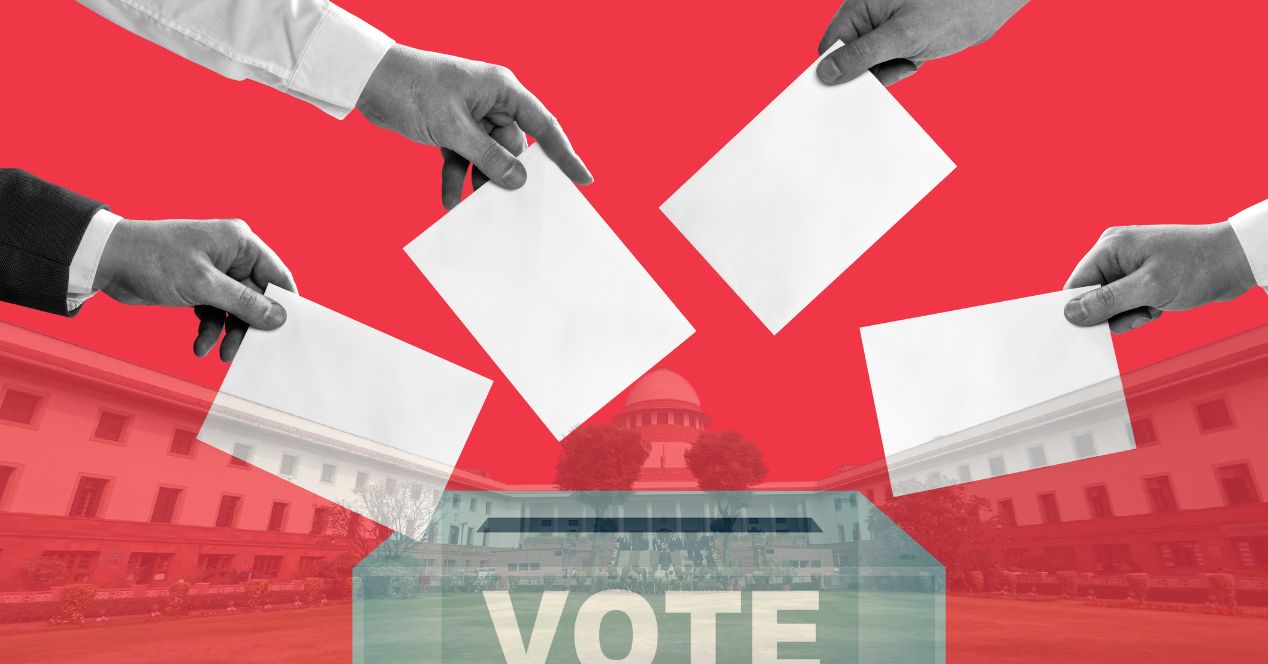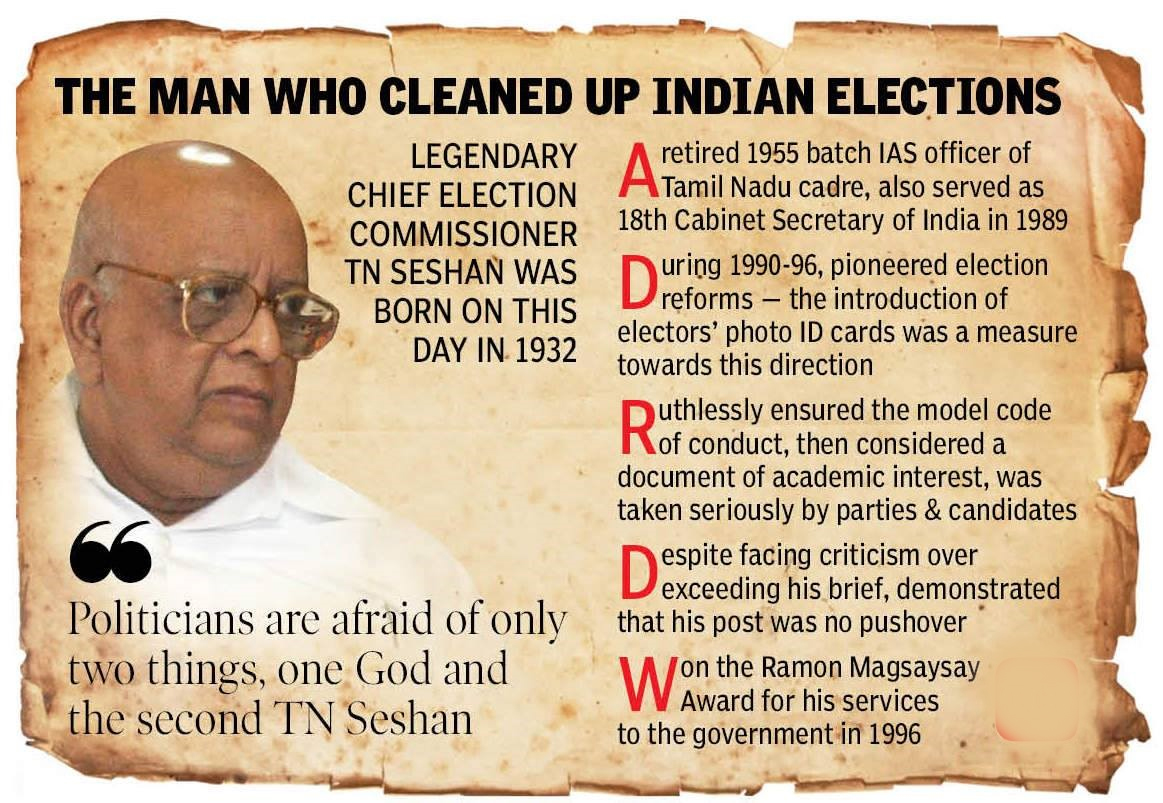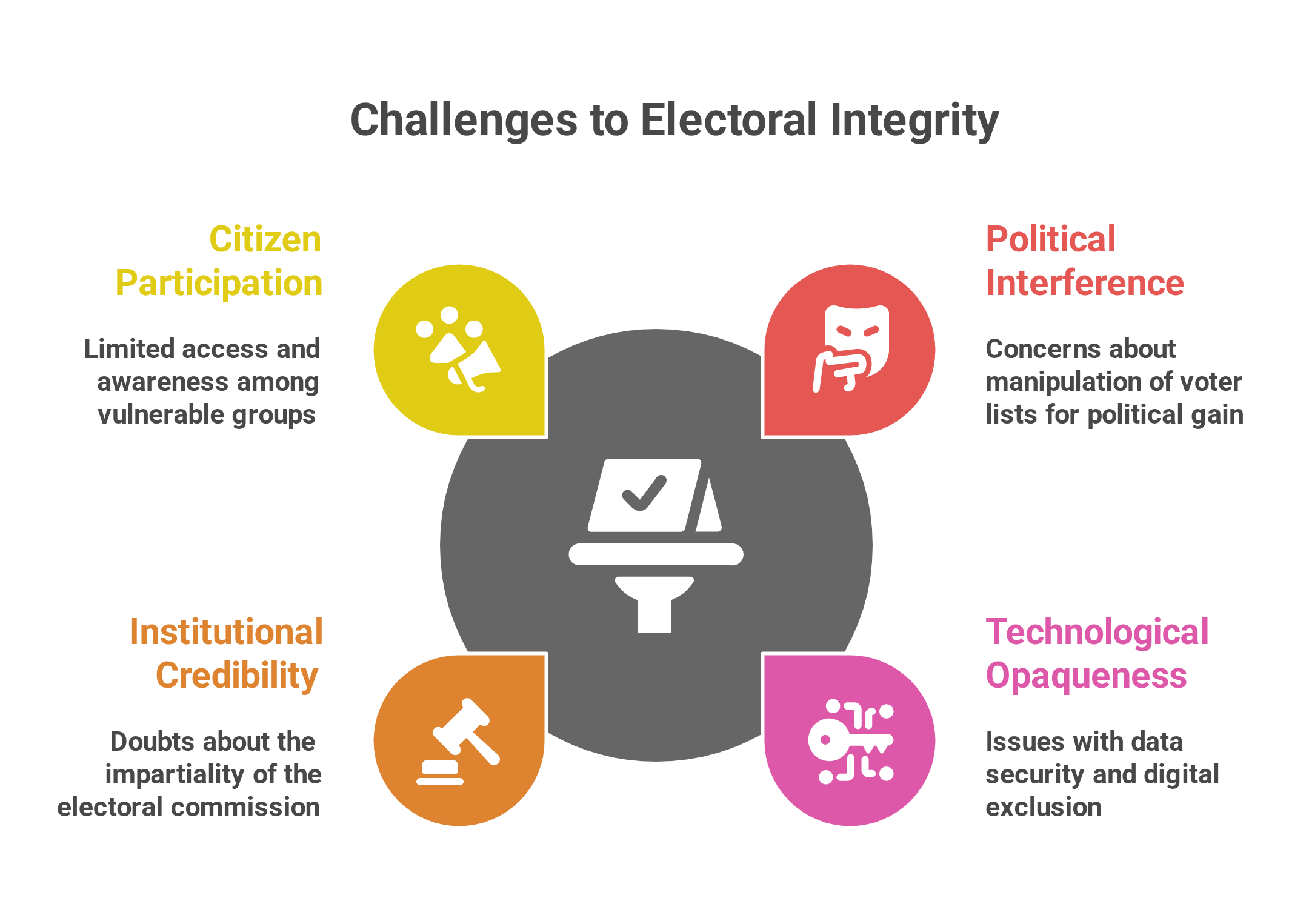Introduction:
India is considered the largest democracy in the world, where every election is not only a platform for competition among political parties but also a testimony to the democratic faith of citizens. The foundation of this faith is the fairness and transparency of the electoral process. The electoral roll is the basis of this process, as it determines which citizen will exercise his democratic right. In this context, the Special Intensive Revision (SIR)—a special electoral roll revision drive—initiated by the Election Commission of India has become the centre of controversy. The Commission claims that this initiative is necessary to ensure fair and orderly conduct of all elections by 2026. However, many political parties and civil society organizations are considering it a means of interference and opaqueness. This controversy is not just about the technical process but also about the constitutional values of Indian democracy, institutional autonomy and the direction of electoral reforms.
Concept and Objectives of Special Intensive Revision (SIR):
The Election Commission regularly revises the electoral rolls to ensure that the list is accurate and up-to-date. It involves the following activities:
1. Deleting names of dead voters.
2. Registration of new voters who have attained the age of 18 years.
3. Updating details of shifted or migrant citizens.
4. Correction of erroneous entries.
Special Intensive Revision (SIR) is a more intensive and comprehensive form of this process. It involves steps like door-to-door verification, booth-level scrutiny, digital authentication and citizen participation. The Commission aims to have a voter list that is accurate, up-to-date and dispute-free by 2026. The initiative is ambitious both technically and administratively, as it not only streamlines the process but also claims to strengthen voter confidence
Under Article 324 of the Constitution and the Representation of the People Act, 1950, the Election Commission is vested with the power and responsibility to ensure the integrity of the electoral rolls. The Commission had earlier exercised these powers in 1952-56, 1957, 1961, 1965, 1966, 1983-84, 1987-89, 1992, 1993, 1995, 2002, 2003 and 2004 to make deep revisions in various fields.
Key points of contention:
While the objectives of the Special Intensive Revision (SIR) may be positive, several apprehensions are being expressed about its implementation.
- Fear of political interference: Several political parties allege that selective changes may be made in the voter list under SIR, which may benefit or disadvantage certain communities. This may affect the demographic balance of constituencies, which may ultimately change electoral results. Opposition parties, in particular, are considering it a means of manipulation in favour of the ruling party.
- Technological opaqueness: The process of linking Aadhaar and EPIC (Elector Photo Identity Card) in Special Intensive Revision (SIR) has been controversial. Experts say that it may violate data security and privacy standards. There is also a risk of digital exclusion due to lack of digital literacy and technological access in rural and poor communities. This may leave vulnerable sections of society out of the voter list.
- Questions on institutional credibility: Whenever political controversy arises on the initiative of the Commission, its moral legitimacy is questioned. Repeated allegations not only affect the image of the Commission but also weaken the confidence of voters. This can be dangerous for democracy, because trust in the impartiality of the Commission is the backbone of the electoral process.
- Lack of citizen participation: The information and process of Special Intensive Review (SIR) often does not reach rural and remote areas. Due to this, women, tribals, migrant workers and poor communities are deprived of registration. Limited participation of citizens reduces the effectiveness of this campaign and makes it opaque.
Constitutional and Legal Perspectives:
Article 324 of the Indian Constitution mandates the Election Commission with the responsibility to conduct free and fair elections. It is an autonomous constitutional body that must act free from political pressure. The Supreme Court has underlined this autonomy in a number of landmark judgments:
- Keshavananda Bharati case (1973): Democracy was held to be part of the basic structure of the Constitution.
- T. N. Sessions v. Union of India (1995): The Commission was held to be the guardian of fairness.
- People’s Union for Civil Liberties (2003): Free choice of the voter and transparency were held to be the basis of electoral reforms.
These judgments demonstrate that revision of electoral rolls is not a mere technical exercise but a constitutional obligation to protect democratic rights.
Impact and Implications:
If doubts remain over the accuracy of the electoral rolls, public trust will be weakened. This can challenge the legitimacy of democracy, as questions over fairness can lead to reduced voter participation.
2. Political polarisation
The frequent controversies over the Commission's initiatives increase distrust among political parties. This makes it difficult to build consensus on electoral reforms at the national level, which is an obstacle to long-term reforms.
3. Crisis of institutional autonomy
The Commission's autonomy is questioned by frequent allegations. If it is seen as a mere administrative unit, it may lose its role as the guardian of democracy.
4. International image
India's electoral model is considered a model globally. If its processes appear controversial, India's democratic credentials will be harmed.
Directions for reform:
The following steps can be taken to make campaigns like Special Intensive Revision (SIR) effective and credible:
1. Balanced use of technology
Digital technologies should be used to enhance transparency, not to cause exclusion.
-
- Aadhaar-EPIC linking must be voluntary and in line with data privacy laws.
- Technologies like blockchain can be used to make the voter list secure and tamper-proof.
- Aadhaar-EPIC linking must be voluntary and in line with data privacy laws.
2. Independent oversight
An independent audit committee should be formed to monitor the processes of the Commission, which should include experts from the judiciary, civil society and academia.
-
- This will increase transparency and accountability.
- This will increase transparency and accountability.
3. Citizen awareness and participation
Extensive awareness campaigns should be conducted about Special Intensive Revision (SIR), especially for rural and marginalized communities.
-
- Increase the participation of local bodies, NGOs and voluntary organizations.
- Special attention should be given to the inclusion of women, tribals and migrants.
- Increase the participation of local bodies, NGOs and voluntary organizations.
4. Constitutional and Legislative Reforms
A collegium system should be implemented for the appointment of Election Commissioners, which should include the Prime Minister, CJI and the Leader of the Opposition.
-
- The Commission should be given financial and administrative autonomy.
- An independent Election Ombudsman can be set up to redress grievances.
- The Commission should be given financial and administrative autonomy.
Global perspective:
Other democracies in the world follow different models for revision of electoral rolls:
- United Kingdom: House-to-house verification is done every year under the Annual Canvass of Electoral.
- United States: Automatic voter registration is implemented in some states, where the voter list is prepared from the government database.
- Australia: Special attention is paid to the accuracy of the list with compulsory voting and an independent election commission.
India can take inspiration from these models and make its process more effective.
Conclusion:
India's democracy is its biggest strength and the Election Commission is its watchdog. Initiatives like Special Intensive Revision (SIR), if implemented with transparency and broad participation, can further strengthen the electoral process. But if doubts remain on them, it will weaken institutional trust.
Today there is a need for the Commission to redefine its processes on the basis of constitutional ethics, technical transparency and citizen participation. At the same time, political parties also have to respect the independence of institutions. As the Supreme Court said, “Free and fair elections are the lifeblood of democracy.” If the accuracy of the voter list and the autonomy of the commission are questioned, the soul of democracy may be in danger. The Special Intensive Revision (SIR) controversy is a reminder of this.
| Main question: Discuss how controversies like the Special Intensive Revision (SIR) of electoral rolls highlight the tension between institutional independence of the Election Commission and political skepticism of opposition parties. Suggest reforms to strengthen institutional credibility. |









